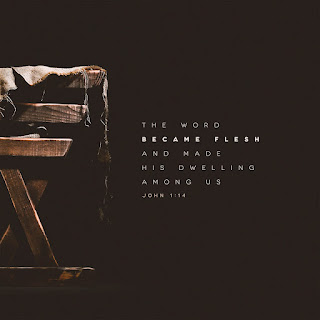Embracing the Mystery of the Incarnation
Reflection on John 14:9 and Colossians 1:15
Jesus responds to Philip's request to see the Father by saying, "Anyone who has seen me has seen the Father."(John 14:9) This profound statement reveals one of the central truths of the Christian faith: that Jesus is the visible manifestation of the invisible God. The apostle Paul echoes this truth, declaring that "the Son is the image of the invisible God."(Colossians 1:15) Jesus is not merely a teacher or prophet, but God Himself, taking on human form to dwell among us.
The reality that God became flesh in the person of Jesus is an awe-inspiring mystery. It stands as the foundation of our faith. As we reflect on this, we recognize the humility and love of God in entering our world and becoming like us. Matthew reminds us that this was foretold long before, with the prophecy that "The virgin will conceive and give birth to a son, and they will call him Immanuel" (which means 'God with us'-Matthew 1:23). The very essence of Christianity is built on the truth that God did not remain distant but came near, sharing in our humanity.
When Jesus declared, "I and the Father are one" (John 10:30), He was making it clear that His works, words, and very presence were a direct revelation of God the Father. The apostles consistently affirmed this truth throughout their witness. The writer of Hebrews boldly states that Jesus is the "radiance of God's glory and the exact representation of his being" (Hebrews 1:3). There is no distinction in nature between the Father and the Son; in seeing Jesus, we encounter the fullness of God.
The apostle Thomas, initially doubting Jesus' resurrection, becomes the ultimate witness to this truth. Upon encountering the risen Christ, he proclaims, "My Lord and my God!"(John 20:28). This moment captures the overwhelming realization that in Jesus, God Himself was standing before him, victorious over death.
As we ponder these scriptures, let us marvel at the immense love and grace of God who would come to us in human flesh. He did not remain distant but chose to experience our struggles, pains, and joys. The incarnation is more than just a historical event—it is the ultimate demonstration of God's love for us.
Take a moment today to thank God for His incredible gift of coming to us in the person of Jesus Christ. Reflect on how His presence in the flesh changes everything about our understanding of God, and how it gives us a solid foundation for our faith. In Jesus, we see the heart of God—loving, self-sacrificing, and ever-present.
Let us hold fast to the truth that in Christ, God has come near, and may this truth draw us closer to Him in awe and gratitude.
Prayer
Heavenly Father,
We are amazed by Your profound love and humility, that You would come and dwell among us, sharing in our humanity and offering salvation through Your Son. Help us to fully understand the significance of this truth and allow it to strengthen our faith daily. Draw us nearer to You as we reflect on Your presence with us through Your Holy Spirit, and may we live each day in gratitude for the love You have poured out.
In Jesus' name, Amen.





